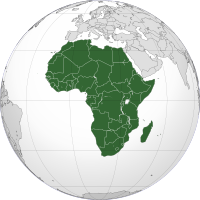
Photo from wikipedia
This study examines how music functions in relation to identity development for African-, Caribbean- and Black-identified emerging adults who have immigrated to Canada. Eleven ACB-identified emerging adults, recruited from music… Click to show full abstract
This study examines how music functions in relation to identity development for African-, Caribbean- and Black-identified emerging adults who have immigrated to Canada. Eleven ACB-identified emerging adults, recruited from music schools, community, and student organizations took part in semi-structured interviews adapted from McAdams’ Life Story Interview protocol to focus on music practices and memories. Thematic Analyses results suggest that transitioning to life in Canada necessitated learning new meanings of being and “becoming” Black. Participants described the influence of music on negotiating identity in a Canadian context. They described using music to resist racist and hegemonic narratives of Canadian Black identity, to connect to and celebrate their embodied Black identities, and establish self-continuity and coherence across histories and generations to connect with spiritual memories, land, and ancestors. We conclude by suggesting implications of this work for practice and developing research methodologies that resist whiteness.
Journal Title: Emerging adulthood
Year Published: 2021
Link to full text (if available)
Share on Social Media: Sign Up to like & get
recommendations!